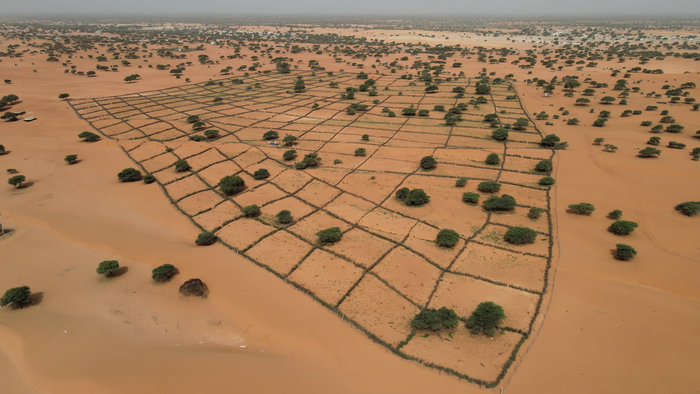World ‘at crossroads’ as droughts surge 29% in 20 years and are only getting worse, UN warns
Urgent action required otherwise 700 million people at risk of being displaced due to drought by 2030, reports Aisha Rimi


Humanity is “at a crossroads” when it comes to managing droughts, with the number rising 29 per cent since 2000, says a new UN report.
The Drought in Numbers report, released on Wednesday to mark Drought Day, says that accelerating mitigation must be done “urgently, using every tool we can”.
It also calls for making a full global commitment to drought preparedness and resilience in all global regions a top priority.
“We are at a crossroads,” says Ibrahim Thiaw, Executive Secretary of the United Nations Convention to Combat Desertification (UNCCD). “We need to steer toward the solutions rather than continuing with destructive actions, believing that marginal change can heal systemic failure.”
The report lays out facts and figures regarding droughts across the world, while creating a compelling case for urgent action towards managing droughts.
From 1970 to 2019, weather, climate and water hazards accounted for 50 per cent of disasters and 45 per cent of disaster-related deaths, mostly in developing countries, states the report.
While droughts only represent 15 per cent of natural disasters, they took the largest human toll, with approximately 650,000 deaths from 1970 to 2019.
The report also reveals that from 1998 to 2017, droughts caused global economic losses of roughly $124bn. In 2022, more than 2.3 billion people face water stress, which includes almost 150 million children who are exposed to severe and prolonged droughts.
“The facts and figures of this publication all point in the same direction: an upward trajectory in the duration of droughts and the severity of impacts, not only affecting human societies but also the ecological systems upon which the survival of all life depends, including that of our own species,” says Mr Thiaw.
If urgent action doesn’t take place, an estimated 700 million people will be at risk of being displaced by drought by 2030, says the UN.
The UN also estimates that by 2040, around a quarter of children will live in areas with extreme water shortages.
By 2050, the situation is expected to become much worse, with droughts affecting over three-quarters of the world’s population, and an estimated 4.8 to 5.7 billion people living in areas that are water-scarce for at least one month each year. That would be up from 3.6 billion people today.
Up to 216 million people could also be forced to migrate by 2050, mostly due to drought in combination with other factors including water scarcity, declining crop productivity, sea-level rise, and overpopulation.
As for the solution, Mr Thiaw suggests a more “proactive” and “risk-based” approach to drought management, rather than a reactive and crisis-based one, which involves coordination, communication and cooperation led by sufficient finance and political support.
“One of the best, most comprehensive solutions is land restoration, which addresses many of the underlying factors of degraded water cycles and the loss of soil fertility.
“We must build and rebuild our landscapes better, mimicking nature wherever possible and creating functional ecological systems.”
The report also highlights several possible options for mitigating droughts.
It suggests we use more sustainable and efficient agricultural management techniques that grow more food on less land with less water.
Moving towards plant-based diets and reducing or stopping the consumption of animals could also greatly help.
Other solutions suggested in the report include effective early-warning systems, investing in soil health, and new technologies such as satellite monitoring and artificial intelligence to guide decisions with greater precision.
The UNCCD reports that nearly 70 countries took part in their global drought initiative.
“We all must live up to our responsibility to ensure the health of present and future generations, wholeheartedly and without delay,” concluded Mr Thiaw.






Join our commenting forum
Join thought-provoking conversations, follow other Independent readers and see their replies
Comments